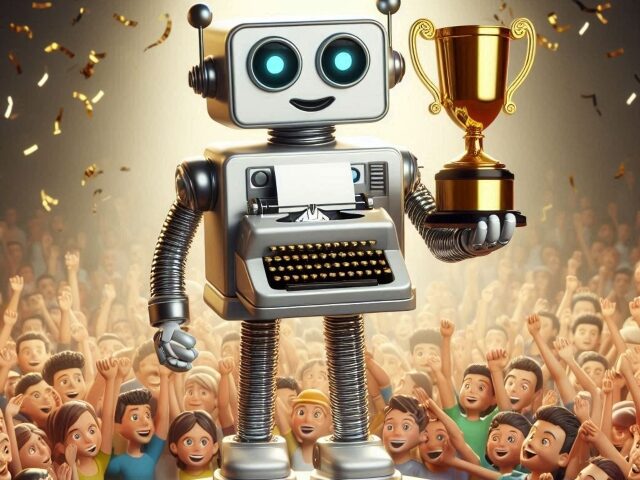The National Novel Writing Month (NaNoWriMo) organization recently faced significant criticism and board member resignations following the publication of an FAQ outlining their position on the use of AI in creative writing. The organization had claimed in the document that criticism of novels written by AI instead of humans is “classist” and “ableist.”
Ars Technica reports that the nonprofit organization NaNoWriMo, known for its annual challenge encouraging participants to write a 50,000-word manuscript during the month of November, released a statement on their website addressing the topic of AI in writing. The FAQ post described the categorical rejection of AI writing technology as “classist” and “ableist,” suggesting that such tools could benefit those who might otherwise need to hire human writing assistants or have varying cognitive abilities.
This stance on AI sparked an immediate backlash from many writers on social media platforms. Critics argued that generative AI models, which are trained on vast amounts of existing text, including copyrighted works, without attribution or compensation to the original authors, raise significant ethical concerns when used in creative writing competitions and challenges.
Several prominent authors voiced their opposition to NaNoWriMo’s position. Chuck Wendig, the author of Star Wars: Aftermath, wrote on his personal blog, “Generative AI empowers not the artist, not the writer, but the tech industry. It steals content to remake content, graverobbing existing material to staple together its Frankensteinian idea of art and story.” Daniel José Older, a lead story architect for Star Wars: The High Republic and one of the four board members who resigned in response to the FAQ, announced his decision on X (formerly Twitter), urging other writers to do the same.
NaNoWriMo’s use of terms like “classist” and “ableist” to defend the potential use of generative AI struck a particularly sensitive chord with opponents of the technology, some of whom identify as disabled themselves. One X user wrote, “A huge middle finger to @NaNoWriMo for this laughable bullshit. Signed, a poor, disabled and chronically ill writer and artist. Miss me by a wide margin with that ableist and privileged bullshit. Other people’s work is NOT accessibility.”
In response to the growing criticism, NaNoWriMo updated their FAQ post to address concerns about AI’s impact on the writing industry and to acknowledge “bad actors in the AI space who are doing harm to writers and who are acting unethically.” The organization maintained that the categorical condemnation of AI is problematic, citing emails from disabled individuals who use generative AI tools to assist with composition when faced with cognitive challenges.
Despite the potential benefits AI may offer to some disabled persons, opponents argue that these do not outweigh what they perceive as mass plagiarism by tech companies. Some artists also express concern that the time and effort they have invested in cultivating their skills may be devalued for anyone’s benefit.
NaNoWriMo has maintained its position of accepting generative AI as a set of potential writing tools, consistent with its “overall position on nondiscrimination with respect to approaches to creativity, writer’s resources, and personal choice.” The organization stated, “We absolutely do not condemn AI, and we recognize and respect writers who believe that AI tools are right for them. We recognize that some members of our community stand staunchly against AI for themselves, and that’s perfectly fine. As individuals, we have the freedom to make our own decisions.”
Read more at Ars Technica here.
Lucas Nolan is a reporter for Breitbart News covering issues of free speech and online censorship.

COMMENTS
Please let us know if you're having issues with commenting.